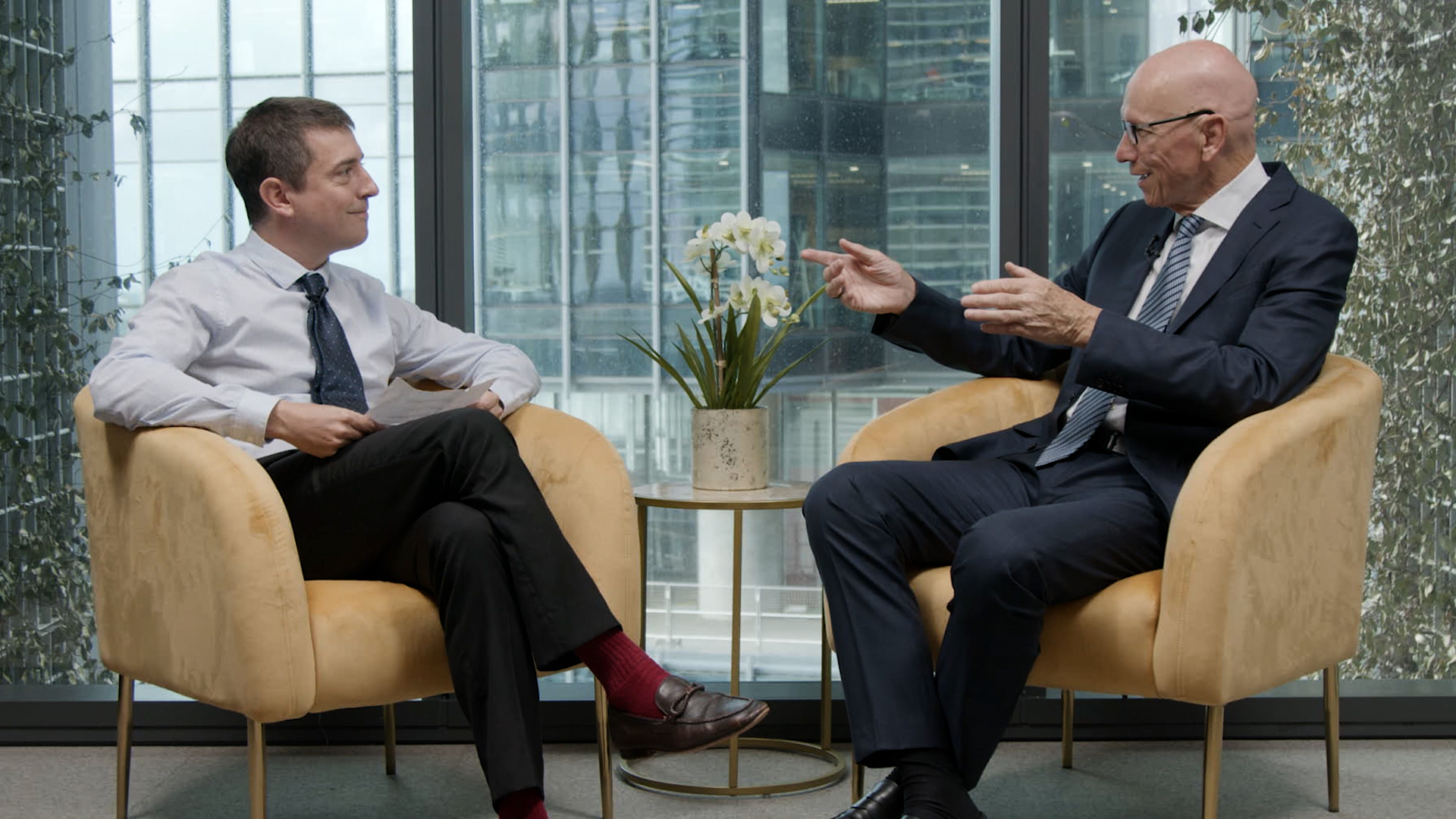Geoff Wilson on investing lessons, mistakes, the banks, and why you should get on X
In this interview Geoff Wilson reveals why he's nervous on markets, his biggest investing lesson, what he thinks is behind the big banks' share price surge, and why investors should use online soapbox X.
The Wilson Asset Management founder is one of Livewire's most popular contributors thanks to his forthright views on how to make money in markets and even offers a few tips on how to think about exchange traded fund (ETF) investing and the rise of passive investing, with a bonus reveal on the asset manager's latest equities and debt hybrid fund.

Best investing lessons, tips, market outlook
Wilson's best advice for investors young and old is not to get spooked into selling shares during downturns. There's always geopolitics and scary headlines in markets to worry about, but if you sell in anticipation of a correction it can ruin your returns he says.
"Time in the market, rather than timing the market is probably the biggest thing I've learned," he says. "If you missed out on the best-performing 20 days over the last 20 years the money you had in the market would have virtually gone nowhere. But if you were in for those best 20 days you would've got a performance of around 8 to 10 per cent."
Another tip for younger investors is that you can often get a market edge simply by picking companies you know and like from everyday experiences or interactions. He gives the example of a health worker telling him Sonic Healthcare is a fantastic company long before it grew into a huge market winner.
While famous Wall Street investor Peter Lynch also said anyone can leverage their everyday experiences to identify tomorrow's winners before they come onto the radar of Wall Street's professional analysts and investors.
Why Geoff likes X
Wilson also says investors who want free market research should get an account on social media platform X (aside from reading Livewire) as it has a massive flow of timely investment information.
"What I did find on X is if you're interested in finance, the information and the speed at which you get that information is exceptional," he says. "There's a good community there and it's a really good way of collecting information and also communicating."
Wilson got on the platform himself after seeing how famous US investors such as Bill Ackman used it to reach audiences directly with their views on markets and anything else. Recently, Geoff has used X to promote his campaign against the proposed tax on unrealised capital gains on super balances over $3 million and talks about the latest on that situation in the wire.
Opposition to potential tax on unrealised capital gains
"It's really an attack on self-managed super funds," he warns. "Once they start taxing unrealized capital gains, then it could well go from super to various other areas. And the interesting thing is Paul Keating hasn't come out publicly, but the man who created effectively superannuation in Australia privately, he thinks it's bad legislation as well."
Are the banks, markets overvalued?
Wilson also explains why "he's a little bit nervous" about the short-term outlook for shares given the uncertainty around US President Trump's plans to impose trade tariffs.
"I think there's a lot of passive money that's gone into the banks," he says. "By any valuation as you put it the banks are expensive. And over time that'll sort itself out maybe with what's happening in the market at the moment, we're getting a little bit of that adjustment happening."
Are passive funds distorting valuations?
He adds that the rise of index-tracking funds and artificial valuations they push shares to means there's more opportunity for active managers to beat the market.
"If [a stock] is going in the ASX 200, there's going to be a free kick there because there'll be the passive money that'll flow into them once they go into the index. So there's been a lot of that," he says.
What's the Wilson Income Maximiser Fund
Wilson also lifts the lid on the asset manager's latest fund, the Wilson Income Maximiser Fund, which will take the form of a listed investment company. The fund plans to be different as it invests in a mixture of equities and debt to try and fill a gap for income-seeking investors who can no longer invest in the big banks' issues of hybrid debt-to-equity notes.
"It'll provide monthly income to investors and frank[ing credits] to the extent we can," he says. "We're talking about in the prospectus 6%. But historically, what this strategy has done has done a lot better than 6% on a growth up basis on a per annum basis."
Watch on for the full video.

4 topics
1 stock mentioned
